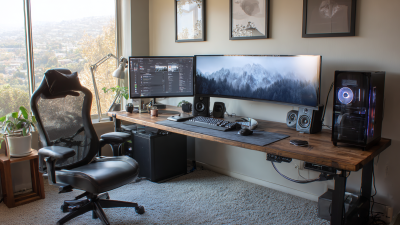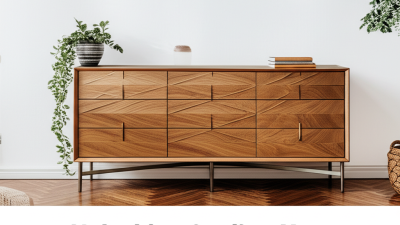When it comes to enhancing the aesthetics and functionality of your home, choosing the right sliding doors is a decision that can significantly impact your living space. According to a report by Allied Market Research, the global sliding doors market was valued at approximately $11.92 billion in 2020 and is expected to reach $17.82 billion by 2028, growing at a CAGR of 5.4%. This surge in demand highlights the importance of selecting high-quality sliding doors that not only complement your home’s design but also improve energy efficiency and ease of access.
 With a variety of materials, styles, and features available, understanding the comparative benefits of each option is essential for making an informed choice that aligns with your lifestyle and decor preferences.
With a variety of materials, styles, and features available, understanding the comparative benefits of each option is essential for making an informed choice that aligns with your lifestyle and decor preferences.
When selecting sliding doors for your home, understanding the various materials and styles available is crucial. According to a 2022 survey by the American Institute of Architects, sliding glass doors are among the top three most desirable features in new home construction, reflecting their popularity for both aesthetics and functionality. Common materials include vinyl, wood, and aluminum, each offering distinct benefits. Vinyl doors are renowned for their energy efficiency and low maintenance requirements, boasting a lifetime savings of up to 25% in energy bills, as indicated by the Department of Energy.
In terms of style, there are multiple options to consider, such as the traditional double-glass panel, bi-fold, and pocket sliding doors. The trend toward increasing natural light has driven the demand for wider and more transparent designs, with bi-fold doors increasing in popularity by approximately 30% over the last five years based on market analysis by the National Association of Home Builders. Each style not only enhances the aesthetic appeal of a home but also provides flexibility in space usage, showcasing the diverse options available to homeowners looking to blend functionality with visual appeal.

When selecting sliding doors for your home, there are several key factors to consider to ensure you make the perfect choice. First and foremost, the material of the sliding door is crucial. Whether you opt for wood, fiberglass, or aluminum, each material offers distinct advantages and aesthetics. For instance, wood adds warmth and character, while aluminum is durable and low-maintenance. Consider the climate in your area as well, as this can influence the longevity and performance of the door.
Another important aspect is the door's design and functionality. Think about how the sliding door will fit with your existing decor and lifestyle. If you have a small space, a pocket sliding door might be an ideal solution, as it saves room and provides a sleek look. Additionally, functionality should be a priority; look for features such as energy efficiency and security mechanisms to ensure your home remains comfortable and safe. Finally, consider the cost and installation process, ensuring that your choice aligns with both your budget and the time you can allocate for installation.
When considering the installation of sliding doors in your home, accurate measurements are crucial to ensure a perfect fit. Begin by measuring the width of the opening where the door will be installed. Make sure to measure at multiple points—top, middle, and bottom—to account for any variations in the wall structure. It's essential to take the smallest measurement as your reference point, as this will guide you in selecting the right door size.
Next, focus on the height of the door frame. Measure from the top of the intended opening down to the floor, again checking multiple areas to find the shortest dimension. A common mistake is to assume that the floor is level; thus, checking is vital. If you're unsure about your measurements, consider seeking assistance from a professional to avoid costly mistakes.
Tips: When measuring, always use a reliable tape measure and note down your measurements precisely. Additionally, consider the type of track system you will use for your sliding doors, as this may affect the final height needed. Lastly, don't forget to account for any trim or moldings that might be present around the opening, as this could influence the door's fit and installation.
When it comes to enhancing home security, choosing the right sliding doors is essential. Unlike traditional doors, sliding doors present unique vulnerabilities due to their design and installation methods. To address these concerns, look for models that feature robust locks and multi-point locking systems, which engage at multiple points along the frame, making it significantly harder for intruders to gain access. Additionally, consider doors made from reinforced materials, such as tempered glass or solid wood, which not only improve security but also offer durability and resistance against forced entry.
Another vital aspect of security is the door’s track system. Opt for sliding doors equipped with anti-lift features, which prevent the door from being removed from its frame. Installing security bars or sliding door locks can further enhance safety, providing an added layer of protection when you're home or away. A well-chosen sliding door not only serves as an attractive entryway but also acts as a formidable barrier against potential threats, providing peace of mind for homeowners.
When selecting sliding doors for your home, it's essential to consider how they will complement your existing décor. Aesthetic coherence can enhance the overall design of your space, creating a harmonious flow. Start by assessing the style of your home—whether it’s modern, traditional, or eclectic. This will guide your choice of materials and finishes. For a contemporary space, sleek glass doors with minimal hardware may be ideal, while wooden frames can add warmth to a rustic setting.

Tips for Matching Sliding Doors to Your Home's Décor:






